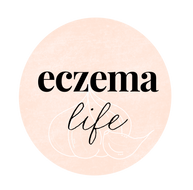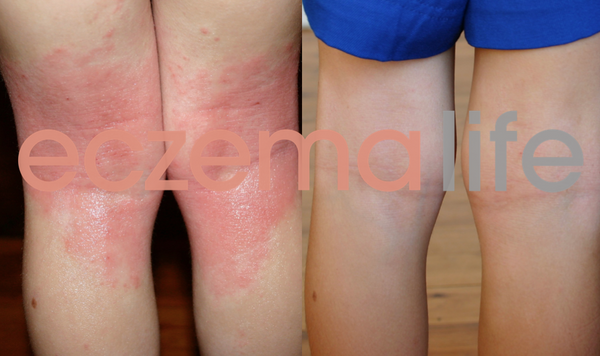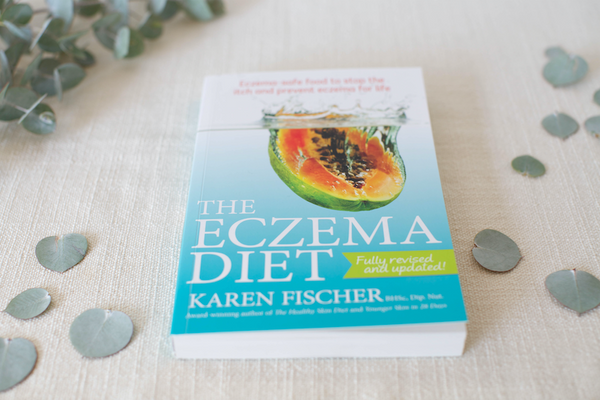Eczema
What is Eczema?
Eczema is derived from a Greek word meaning "to boil out". "Eczema" is also the general term for any type of dermatitis that is itchy.
Eczema is diagnosed by doctors using the following criteria. Firstly you must have itchy skin, plus three or more of the following symptoms…
- itchiness in the skin creases, such as the folds behind the knees and elbows, fronts of the ankles or around the neck (children under four years may also have it on their cheeks)
- dry skin
- visible eczema affecting the outer limbs, cheeks or forehead
- symptoms appearing within two years of birth (not always an indication, but very common)
- family history of asthma, hay fever or (if under four years old) a history of atopic disease in a first-degree relative.
- People with eczema tend to overheat as their skin does not regulate temperature properly.
Other symptoms include oozing and weeping in between the skin folds (such as elbows and knees); thickening of the skin, poor sleep, flaking skin, and scratch marks from scratching.
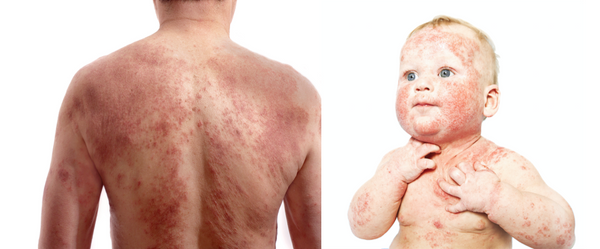
Quick Facts on Eczema
Eczema is also known as atopic dermatitis and symptoms include flaking, red patches, cracks, weeping, crusting and itchiness.
If both parents have previously had eczema then you have an 80 percent chance of developing
According to allergy cross-sectional study in Germany, families who predominantly use margarine (as opposed to butter) are more likely to have children with eczema.
More than 55 percent of eczema sufferers react to salicylates in foods.
What are the different types of eczema?
'Eczema' is the collective term for any type of dermatitis that is itchy and there are seven main types. Here is a comprehensive list of eczema types, the various symptoms to look for and your best treatment options.
Read more and see the photos >>
Eczema Facts
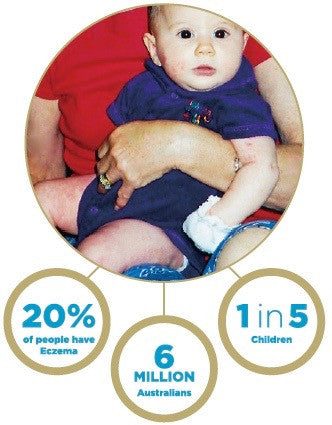
Eczema products
We recommend and prescribe a range of eczema products at the Eczema Life Clinic, and we post worldwide to most countries.
